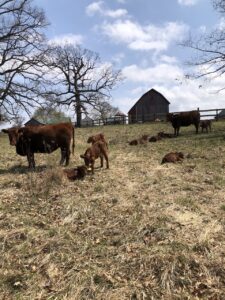
Farm Dictionary 4.jpg
Non-Till
Definition: non-till
non-till: adjective same as no-till agriculture. No-till agriculture involves minimal soil disturbance, promoting soil health and reducing erosion. Farmers can benefit from adopting no-till practices to enhance soil structure, improve water retention, and reduce labor and fuel costs. No-till farming supports sustainable land management, increases resilience to climate change, and can lead to higher crop yields over time. Understanding and implementing no-till techniques can enhance farm sustainability and productivity.
Originally posted 2007-07-09 12:14:56.
Fall off the barn roof and busted your keister? Life on the farm or ranch can be tough on the bum. Need a break? Laugh it off at FarmerCowboy.com, the #1 farm humor site. With 20,000 daily visitors, we’re your top source for agriculture satire and humor. Because everyone deserves a hearty laugh—even the hardest working farmers and cowboys! Join us and turn those long days into fun tales at FarmerCowboy.com.
Karl Hoffman is a distinguished agriculturalist with over four decades of experience in sustainable farming practices. He holds a Ph.D. in Agronomy from Cornell University and has made significant contributions as a professor at Iowa State University. Hoffman’s groundbreaking research on integrated pest management and soil health has revolutionized modern agriculture. As a respected farm journalist, his column “Field Notes with Karl Hoffman” and his blog “The Modern Farmer” provide insightful, practical advice to a global audience. Hoffman’s work with the USDA and the United Nations FAO has enhanced food security worldwide. His awards include the USDA’s Distinguished Service Award and the World Food Prize, reflecting his profound impact on agriculture and sustainability.



